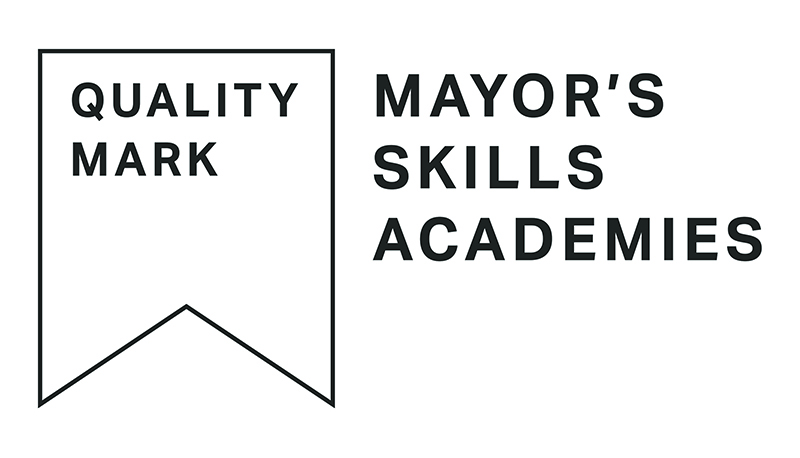-
Digital Marketer Level 3
Entry requirements
Individual employers will set the selection criteria, but this might include GCSEs, A levels, a level 2 apprenticeship or other relevant qualifications, relevant experience and/or an aptitude test with a focus on functional maths. Employers are likely to be looking for a proven passion for digital and social media.
Qualification outcomes
Level 2 Digital Marketer
Job Role
Digital Marketing Assistant, Digital Marketing Executive, Digital Marketing Co-ordinator, Campaign Executive, Social Media Executive, Content Co-ordinator, Email Marketing Assistant, SEO Executive, Analytics Executive, Digital Marketing Technologist.
Overview of role
The primary role of a digital marketer is to define, design, build and implement digital campaigns across a variety of online and social media platforms to drive customer acquisition, customer engagement and customer retention. A digital marketer will typically be working as part of a team, in which they will have responsibility for some of the straightforward elements of the overall marketing plan or campaign. The marketer will work to marketing briefs and instructions. They will normally report to a digital marketing manager, a marketing manager or an IT Manager.
Progression
Learners could specialise in a particular type of digital marketing, like mobile or video marketing, or become a senior digital marketing officer or head of online marketing. They could also work as a freelance digital marketing consultant, or move into related areas like advertising, sales, e-commerce or public relations.
-
Information Communication Technician Level 3
Entry requirements
Individual employers will set the selection criteria, but this might include GCSEs, A levels, a level 2 apprenticeship or other relevant qualifications, relevant experience and/or an aptitude test with a focus on functional maths. Employers are likely to be looking for a proven passion for digital and social media.
Qualification outcomes
Level 3 NVQ Information Communication Technician
Job Role
Cloud technician, Communications technician, Cyber/security support, Data centre support technician, First-line support, Help desk support, IT field technician, IT Support analyst, IT support officer.
Overview of role
This occupation is found in organisations, large and small, in all sectors, and within public, private and voluntary organisations. Organisations increasingly rely on computer and communications systems in all areas of their operations and decision-making processes. It is therefore crucial to ensure the optimal performance and maintenance of systems. An Information Communication Technician (ICT) is critical to achieving this. The broad purpose of the ICT occupation is to deliver efficient operation and control of the IT and/or Telecommunications infrastructure (comprising physical or virtual hardware, software, network services and data storage) either on-premises or to end-users provisioned as cloud services that is required to deliver and support the information systems needs of an organisation. The occupation includes contributing to the preparation for new or changed services, operation of the change process, the maintenance of regulatory, legal and professional standards, the building and management of systems and components in virtualised and cloud computing environments and the monitoring of performance of systems and services in relation to their contribution to business performance,
their security and their sustainability. The Information Communications Technician makes their contribution through the application of infrastructure management tools to automate the provisioning, testing, deployment and monitoring of infrastructure components. An Information Communications Technician (ICT) provides support to internal and/or external customers, by using tools or systems to problem solve and trouble-shoot routine and non-routine problems. This occupation supports clients/customers with their systems. They achieve this through monitoring and maintaining the systems and/or platforms to maximise productivity and user experience. An ICT could be installing and configuring computer systems, diagnosing hardware and/or software faults, solving technical and applications problems, either remotely or in person. Some examples of these issues are slow performance, connection problems, and an inability to access data.
Progression
With experience, learners could move into a supervisory or management role, they could also apply for roles in training or technical sales.
With continued training, they could move into:
· network engineering
· database administration
· business or systems analysis
· IT security
· IT project management
Professional recognition
This standard aligns with the following professional recognition:
· RITTech for 3
-
Junior Content Producer Level 3
Entry requirements
Individual employers will set their own entry requirements, but this will typically include English and Maths at GCSE Grade C or above.
Qualification outcomes
Level 3 NVQ Junior Content Producer
Job Role
Cloud technician, Communications technician, Cyber/security support, Data centre support technician, First-line support, Help desk support, IT field technician, IT Support analyst, IT support officer.
Overview of role
A Junior Content Producer (also referred to as a Creative Content Assistant) is responsible for developing and creating content that can be used across a variety of media including digital, social media, broadcast or in print. Working to the customer/client brief, they research, prepare and develop the media messaging to maximise audience engagement, capturing the strategy and objectives of the brand and needs of the customer they are representing. The content they create can be used as part of media, advertising and marketing campaigns. They have to capture what is exciting about a campaign and design the elements that can be used across media platforms and channels. Junior Content Producers collaborate with designers and developers, using authoring languages to create content for the World Wide Web, which may include video, images, text (or “copy”) and web pages and social media content, so an enthusiasm for technology and creating great online experiences is a must. They can work in advertising, marketing or digital agencies, or in interactive roles for broadcasters.
Progression
Junior Content Producers may progress into Content Creation/Development roles at more senior levels across the industry, including with digital agencies, broadcasters and publishers










































